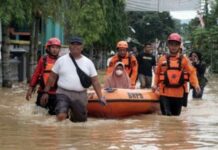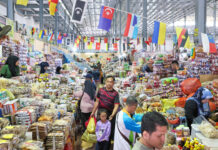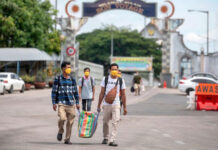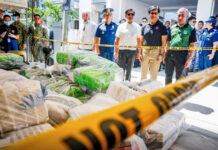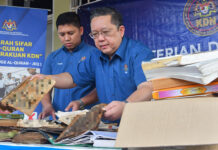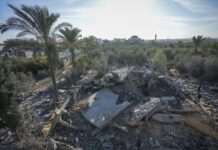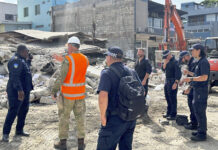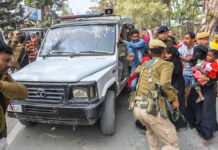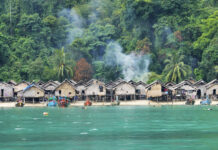RIAU (CNA) – In the face of rising wildfires, Indonesia ramps up resources such as patrol helicopters and fire watchtowers to help in early detection.
The country has been battling an increased number of wildfires as the dry season, which is expected to peak this month, intensifies nationwide.
The National Disaster Mitigation Agency recorded nearly 500 forest fires in the first eight months of this year, as a result of the El Nino weather phenomenon.
El Nino is a weather pattern that takes place every two to seven years on average, bringing warmer-than-average sea surface temperatures in the central and eastern Pacific Ocean near the equator. It last occurred between 2018 and 2019.
Deploying more resources
Early detection is a key part of Indonesia’s wildfire management efforts.
At Asia Pulp and Paper (APP), one of the country’s largest pulp and paper companies, an elite group of firefighters routinely patrol its vast plantation in the Riau province to detect wildfires early.
Part of the rapid response team, they also act as the first responders when a fire is spotted, with a team deployed for every 20,000 hectares of land area.
Each team is equipped with provisions and has been conditioned to survive for days in the forest, fighting wildfires until they are extinguished.
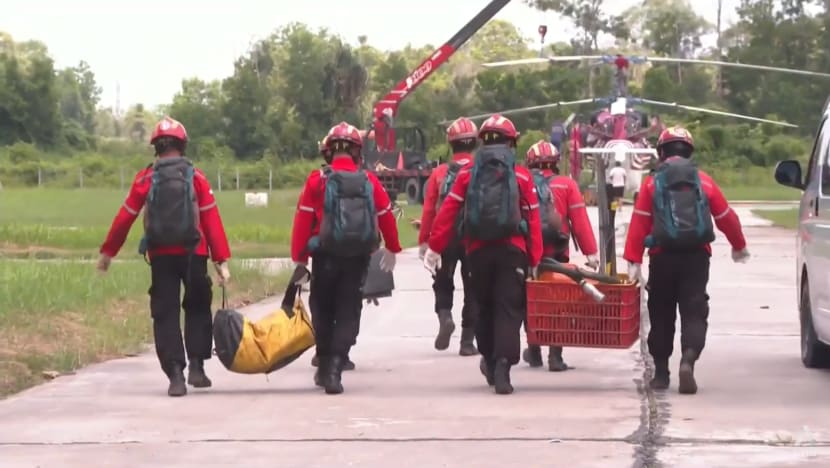
Priyo Septiahadi Utomo, APP’s head of fire operation management for Riau, told CNA: “If there is a fire at one spot, we will see which team is the closest and we will make the first deployment to the location.
“The management has set a target that we should arrive at the fire spot in less than 42 minutes, and we should control the fire in less than two hours.”
The firefighters use helicopters to conduct aerial patrols in remote areas. In preparation for the drier season this year, APP has added eight more helicopters to its fleet.
APP’s leader for fire operation management in Riau John Eddy Pasaribu has been a firefighter for 28 years, and was part of the team that battled the massive wildfires in 2015.
The 56-year-old, who spent four months on the field fighting the blaze at the time, still remembers how tough it was to put out peatland fires.
“The peatland is fuel (for fire) during the dry season. The land is dry, reaching a depth of 1m and is easily combustible. When the fire is small, we can quickly put it out before it reaches further into the ground,” Pasaribu told CNA.
“But if the fire goes on for eight hours or more, it will run into the ground. There lies the difficulty. So when we’ve extinguished a fire, we should continue to patrol the location for three days. Are there still traces of smoke? There is a possibility the fire might ignite again.”
The 2015 fires in Indonesia razed more than 2 million hectares of forests in Sumatra and Kalimantan, with a majority of them on peatlands. It cost at least USD16 billion in economic losses.
The resulting haze blanketed parts of Indonesia and neighbouring countries, including Singapore.
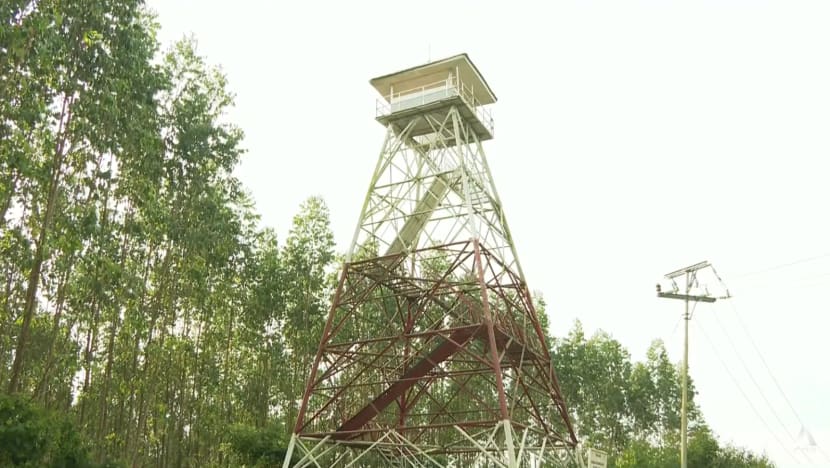
Engaging the community
APP also engages the community in fire prevention by urging villagers to stop practicing slash-and-burn methods when clearing land for new planting.
Vegetable farmer Rumita Olivia Sitanggang stopped burning her land in 2016 after getting help from APP, which provided her with machines to clear the land.
“Burning was so much easier. We burn in the evening, the next day everything is cleared. So we can work on the land immediately,” said the beneficiary of APP’s fire prevention programme.
“After burning, the ash also becomes fertiliser. We divide the area first, burning one area after another every day until everything is cleared.”
However, fires still occur in APP’s concession areas which span more than 2 million hectares across five provinces.
About 28,000 hectares of APP’s land were scorched last year, with some fires occurring in areas where it faces land conflicts with the local community.
“We have overlapping licence areas where we have communities making claims to the area, which means APP cannot work in that area,” the firm’s head of stakeholder engagement and advocacy Letchumi Achanah told CNA.
“So until that is resolved, that area again remains unmanned, which means any third party could come in. There could actually be smoke somewhere around there which could light up some small fires, which turn into a larger fire.”
APP said it is committed to limiting fire occurrences to less than 2 per cent of its concession areas, along with those of its suppliers.
The company has so far managed to control the fires, but with the onset of a more severe El Nino this year, the heat is on and its fire management system will be put to the test.






